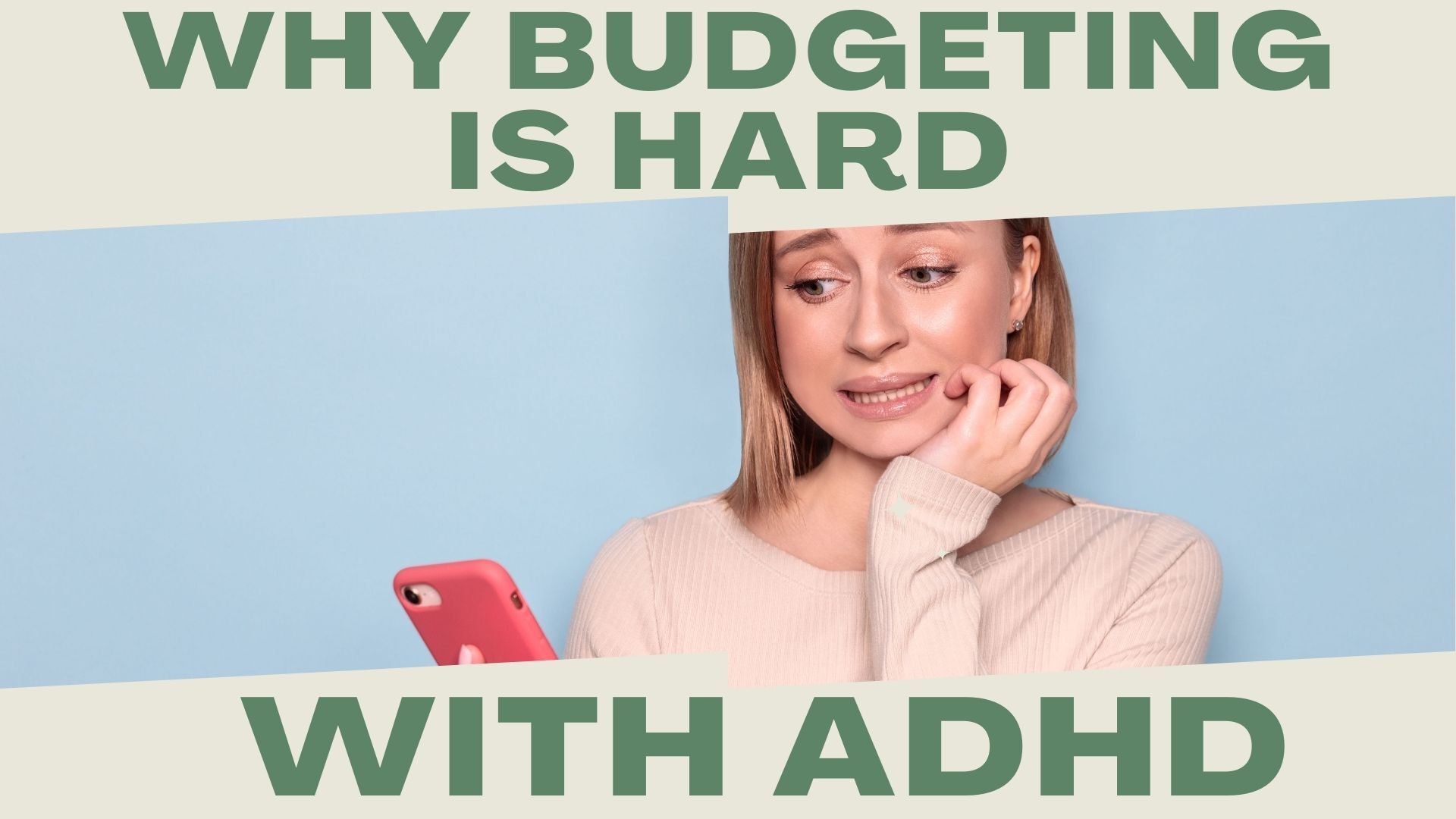4 Reasons Why Budgeting is Hard For Those That Have ADHD And How To Combat It
Discover why budgeting is hard when you have ADHD and learn some tips on to how to combat it.

Budgeting with ADHD can be one of the most challenging aspects of the condition. Our finances are one of the biggest drivers of stress, and this is heightened for those with ADHD who can have natural disadvantage when it comes to good personal finance management. Let's dive into the top 4 reasons that people with ADHD struggle to manage a budget and at the end provide some tips as to how to combat them.
It's a boring task that requires focus 🥱
ADHD can sometimes feel like an allergy to anything that is boring or repetitive. Staying focussed on a piece of boring admin almost feels painful if not impossible. As dopamine seekers, we will gravitate to the most interesting tasks and be repelled from the ones that we feel are boring. Budgeting is objectively a pretty boring task. Lots of numbers, spreadsheets, documents. I'm falling asleep just writing about it. It's because of this that many of us with ADHD never even get past the first hurdle of creating a budget in the first place.
We struggle to plan ahead
Budgeting requires forward planning and being able to quantify what has to happen and when in order to align your income with your outgoings. We're also notoriously forgetful which can impact our ability to stay on top of recurring costs.
Some examples of this:
- Forgetting to cancel subscriptions
- Forgetting to pay fines on time
- Losing track of when important bills are due
- Overspending early in the month and being short later
Even if we set a budget at the beginning of a month with good intentions, very often there is a second version of you that appears to be dead set on avoiding the budget at all costs.
Impulsive brains = Impulsive spending
This is a biggie that I think a a lot of people with ADHD will relate to...our impulsive nature. This is the monkey on the shoulder that will derail any attempts at setting a budget and is also one of the most difficult to get under control. As people with ADHD, we tend to be dopamine seekers. In today's society, where everyone is in competition for our attention and our wallets it can feel like an uphill battle keeping the money in our banks. Ultimately, there is no short term dopamine reward for good financial behaviour when compared to the thrill of spending.
Impulsive spending can manifest in lots of ways, such as:
- Adding groceries you don't need at the supermarket
- Impulsively buying from the middle aisle at Aldi or Lidl
- Giving into social media advertising
- Becoming hyper focussed on a new potential hobby and buying the kit prematurely
- Subscriptions to lots of apps or making in-app purchases for games
We just can't think ahead
The symptom of 'time blindness' is common in those with ADHD and can wreak some havoc on any longer term planning. Budgeting requires you to consider the longer term implications of your decisions today and that can be very difficult for somebody with ADHD. This is because we favour the short term excitement of what we do today over the longer term impact on the future. Aside from making budgeting difficult, this can have other impacts on our spending decisions, such as getting into debt. An example of this would be purchasing something on a credit card. Instead of considering all the implications and costs associated with debt in the long term, we just see the immediate impact of buying that item we want.
Top tips for making budgeting with ADHD easier
Build a bills calendar
This can be helpful in keeping track of your bills and remembering important dates. You can use an old fashioned or digital calendar for this. Take some time to check when all your direct debits or regular payments/bills are due to be paid and put it in the calendar. Make it a part of your routine to glance at this every day to keep your finger on the pulse. This way you are more likely to consider what is coming up when you are thinking about spending any money.
Split your money when you get paid
At the beginning of the month when you get paid, consider splitting your money into different bank accounts or pots. This way, you are not getting overwhelmed by all the money being in one place. Separate your 'fun' money into an account that you can use day to day, but keep the rest somewhere else for your bills. This protects you against spending money that you really need for important things like your housing, food or energy bills.
Use the 24 hour rule
The best way to combat impulse spending is to give yourself time to realise the impact it will have on you. If you get the feeling you want to buy something, set a 24 hour reminder on your phone and make a promise to yourself that you won't buy it until the 24 hours is up. You will find that you have moved onto something else and don't actually want or need what was so important yesterday. If you still want to buy it, then of course you can.
Regularly reflect on bank transactions
Awareness is the first step in managing your budget with ADHD. To do this you should try and regularly glance at your account and transactions to get a sense of where your money is going and how much you have left. It might feel scary at first but it will actually bring a feeling of confidence and control after you get into the swing of it. To take it a step further, consider reflecting on whether those transactions were 'wants' or 'needs'. This can help you develop a mindful approach to spending.
Use an app to help keep you on track
Money apps can be a really useful way of keeping track of your everyday spending and budgeting. At Rule we're building the most engaging money app by turning the daily management of money into a game. We're building an app designed specifically for people with ADHD to help them manage their money in a way that works for them.
We do this by making everything bite sized, digestible and challenge based. We’ve turned budgeting into simply swiping through a few transactions each day. After this we challenge you to save a small random amount so that each time you put in work you’re also building your savings.
We’ve been building this with our ADHD & money community and people are loving it.
"Just been having a check-up on the savings made since the takeaway challenge I participated in. I've tried to stick with it, and yes, I have succumbed on a few occasions. BUT...absolutely mind blown that I've already saved over £3,000!"
This is all tied together with a virtual pet. Doing well in the app and with your money, means your virtual pet does well too. They can help keep you on track and accountable too!

For us, building motivation via simple daily habits and actions, as well as the motivation required to continue is what is really required to support those with ADHD. We focus heavily on your habits and behaviours, as a method for curbing impulse spending and changing behaviour.
We believe that to support people with ADHD it requires a totally different approach for long term financial wellbeing and confidence. But we can’t build it alone, please try it out for free and give us feedback!